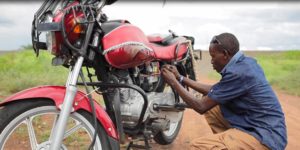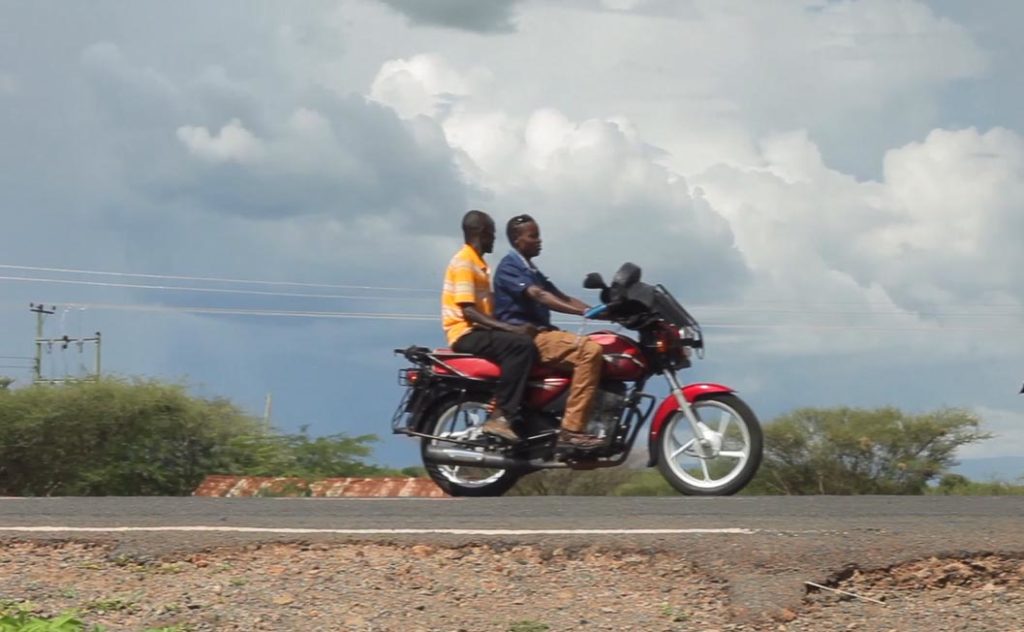 According to Worldometers, Kenya’s total population is currently estimated to be 50.9 million with the median age being a young 19.2 years. The 2009 national census found that out of a population of approximately 38 million people, youth (15-35 years) and children (0-14 years) constitute 78% of the total country population. This youth bulge creates a unique set of development challenges, chief among them is how to address an overall unemployment rate that stands at approximately 40%, with 64% of the country’s unemployed being youths.
According to Worldometers, Kenya’s total population is currently estimated to be 50.9 million with the median age being a young 19.2 years. The 2009 national census found that out of a population of approximately 38 million people, youth (15-35 years) and children (0-14 years) constitute 78% of the total country population. This youth bulge creates a unique set of development challenges, chief among them is how to address an overall unemployment rate that stands at approximately 40%, with 64% of the country’s unemployed being youths.
While rates of youth unemployment vary widely across the regions, the dryland areas/Arid and Semi-Arid Lands (ASALs) tends to have higher levels. Many of the young people here live in small villages, have little or no education, married young with multiple wives and children, and have no formal skills. They rely on pastoralism, a profession with an unlikely future, for livelihood. The imminent threat of drought, floods, and conflict over resources have created a “ticking time-bomb” scenario that is exacerbated by climate change, leaving many disillusioned and cynical about their futures.
CWS Cash For Work programs offer youths in these dryland areas the ability to make money while capitalizing on their energy and creativity and responding to the most pressing short-term problems facing their communities. Participants are also able to play a vital role in long term catalytic programs to achieve sustainable development. For instance, when the 2016-2017 devastating drought, which was categorized as a national disaster, left an estimated 2.7 million people from 23 out of the total 47 counties in need of humanitarian assistance, CWS mobilized communities in Baringo and Tana River counties and engaged them in cash for work activities, a key enabler to reducing poverty and boosting youth prosperity while also helping address the needs in the community created by the drought.
Meet Nixon Kurui, a youth representative from Baringo County. Nixon is 25 years old and newly married.
“The main challenge facing our community is lack of water and as the chairman of the Moinonin youth group, I mobilized the rest of my team; close to 180 members to participate in the distillation of our water pan.”
For 23 days of work, earning US $ 3 (Ksh 300) daily, Nixon was able to make enough money to meet his basic needs and with the remainder of the cash for work proceeds, topped up by sale of his livestock, bought a motorbike and now runs a brisk transport business locally known as “bodaboda”.

“With the savings from the Cash for Work, I felt the need to start and run my own business. I therefore settled for motorbike transport, since it is easy to manage and has good returns. On a good day, say for example during market days, I can make around $US 10 (ksh 10), but on normal occasion, I make atleast a net of $US 5 (Ksh 500), that is after buying fuel and doing minor servicing of the bike.”
With enough income from his daily earnings, Nixon is not only transforming his life but also that of his siblings:
“Atleast my wife and I can afford food. Importantly, the fact that I dropped out of schooling, should not mean that my sister doesn’t also finish school. I have dedicated part of my earnings to paying school fees for my young sister who is in her 4th year in high school.”
See the cash for work manuscript here.
Prepared by Caleb Wafula – Information Specialist-CWS Africa
